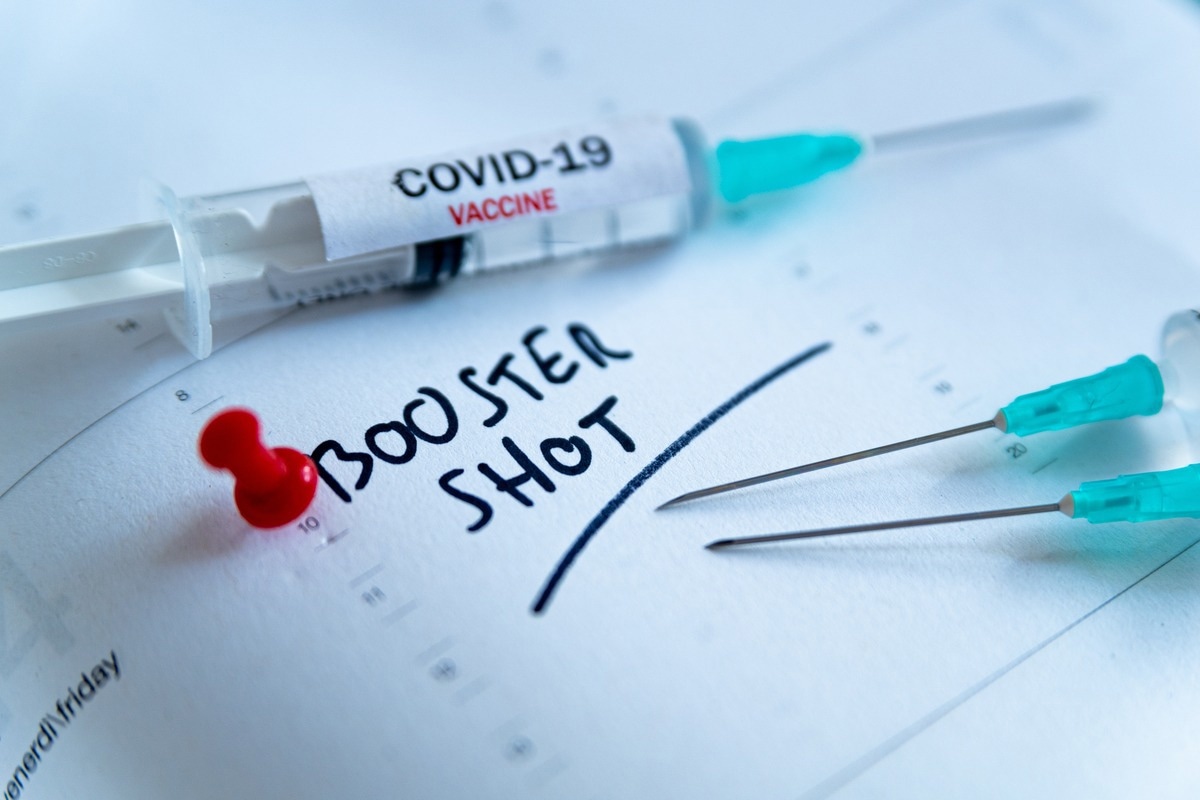In a recent study posted to the medRxiv* preprint server, researchers assessed the severe acute respiratory syndrome coronavirus 2 (SARS-CoV-2) vaccination booster approaches in the face of arising SARS-CoV-2 variants in Europe.

Background
SARS-CoV-2 has caused over 543 million confirmed infections and 6.33 million fatalities so far globally, and more than 11.6 billion doses of the SARS-CoV-2 vaccine have been given worldwide. The SARS-CoV-2 vaccinations decreased the severe CoV disease 2019 (COVID-19) burden and allowed the relaxation of the non-pharmaceutical interventions.
Nevertheless, the contemporary COVID-19 vaccination approaches need an assessment, considering the waning of immunity and the emergence of more contagious SARS-CoV-2 variants of concern (VOCs). Furthermore, the circulating SARS-CoV-2 variants with immune-escaping mutations might become dominant, more severe, and manifest as periodic waves as population-wide COVID-19 immunity drops. This accentuates how urgent it is for everyone to receive a minimum of one dose of the SARS-CoV-2 vaccination and how relevant the strategic administration of the booster doses of COVID-19 vaccines is.
About the study
In the present study, to determine the ideal frequency, timing, and target populations for COVID-19 vaccine boosters to reduce the risk to health systems and burden on the public health, the researchers used a SARS-CoV-2 transmission model called OpenCOVID.
The team calculated the number of new SARS-CoV-2 infections and COVID-19-linked hospital admissions that could have been prevented for two years by biannual or annual COVID-19 vaccine boosting of eligible individuals who were 1) most susceptible, i.e., 60 or older or people with comorbid conditions, or 2) those above five years. They examined the impact of booster vaccination at universal, i.e., 98% of eligible or lower coverage, i.e., 85% of those above 50 years or with underlying health conditions and 50% of those aged five to 49 who were eligible, representing moderate vaccine hesitancy and, or fatigue. Additionally, the eligible subjects for booster dose administration were those who received one and two SARS-CoV-2 vaccine doses.
The investigators simulated three emerging variant situations: 1) no novel variants, 2) variants that are 25% more contagious and immune-escaping, have an Omicron-level severity, develop yearly, and become dominant, and 3) variants that emerge twice a year. They also evaluated the effects of altering variant severity, seasonality, immune evasion, timing, infectivity, and assumptions about vaccine infection blockage.
Results
The authors reported that whether or not novel SARS-CoV-2 VOCs appear, COVID-19 vaccination boosters should be given to all eligible individuals yearly three to four months before the peak winter in Europe to reduce SARS-CoV-2-related hospitalizations during the following two years. Indeed, the current findings were in line with a study performed in the United Kingdom (UK). The UK study also highlighted the necessity of antiviral supplies to prioritize early treatment of most vulnerable patients immediately after they test SARS-CoV-2-positive as COVID-19 vaccines might be less potent in susceptible populations.
Further, the researchers discovered that boosting only the most susceptible, characterized as those aged 60 years or older or individuals with comorbidities, might not be sufficient to achieve lower COVID-19-linked pressure on healthcare systems under the present assumptions of vaccine- and natural infection-induced immunity waning. Furthermore, they found that SARS-CoV-2 booster vaccinating every eligible person safeguards the most susceptible more than providing booster doses only to the vulnerable population. This inference had significant implications for vaccine strategy for the impending Northern winter of 2022.
On the contrary, annually boosting the most susceptible individuals compared to every eligible people might avoid more COVID-19-associated hospitalizations per booster dose, which was a sign of cost-effectiveness. A switch to biannual boosting, however, revealed diminishing returns.
In addition, the present results remained robust after altering the primary model parameters. However, the team discovered that boosters, whether given yearly or twice yearly, will have less impact as SARS-CoV-2 variants with increasing infectiousness arise more regularly.
Conclusions
Overall, the current research simulated different COVID-19 vaccination strategies and model assumptions utilizing the person-based SARS-CoV-2 transmission model they developed, OpenCOVID. The team determined the preferred timing, frequency, and target population for the future COVID-19 vaccine booster doses considering the potential emerging viral variants. Besides, the model outcomes were utilized to evaluate the effects of various COVID-19 vaccination booster procedures on the risks to the health system and the consequences for public health related to SARS-CoV-2 infections.
The study findings showed that well-timed and targeted COVID-19 booster vaccination prioritizing vulnerable people and, if feasible, all those who were eligible for booster doses could limit SARS-CoV-2 infections and accompanying hospitalizations. The current data offer model-based proof for decision-makers to strategize administering COVID-19 boosters before the 2022-2023 winter to combat the stress on the health system and health burden.
*Important notice
medRxiv publishes preliminary scientific reports that are not peer-reviewed and, therefore, should not be regarded as conclusive, guide clinical practice/health-related behavior, or treated as established information.
- Kelly, S. et al. (2022) "COVID-19 vaccine booster strategies in light of emerging viral variants: Frequency, timing, and target groups". medRxiv. doi: 10.1101/2022.06.22.22276760. https://www.medrxiv.org/content/10.1101/2022.06.22.22276760v1
Posted in: Medical Science News | Medical Research News | Disease/Infection News
Tags: Coronavirus, Coronavirus Disease COVID-19, covid-19, Fatigue, Frequency, Health Systems, Healthcare, Hospital, immunity, Omicron, Public Health, Research, Respiratory, SARS, SARS-CoV-2, Severe Acute Respiratory, Severe Acute Respiratory Syndrome, Stress, Syndrome, Vaccine

Written by
Shanet Susan Alex
Shanet Susan Alex, a medical writer, based in Kerala, India, is a Doctor of Pharmacy graduate from Kerala University of Health Sciences. Her academic background is in clinical pharmacy and research, and she is passionate about medical writing. Shanet has published papers in the International Journal of Medical Science and Current Research (IJMSCR), the International Journal of Pharmacy (IJP), and the International Journal of Medical Science and Applied Research (IJMSAR). Apart from work, she enjoys listening to music and watching movies.
Source: Read Full Article
